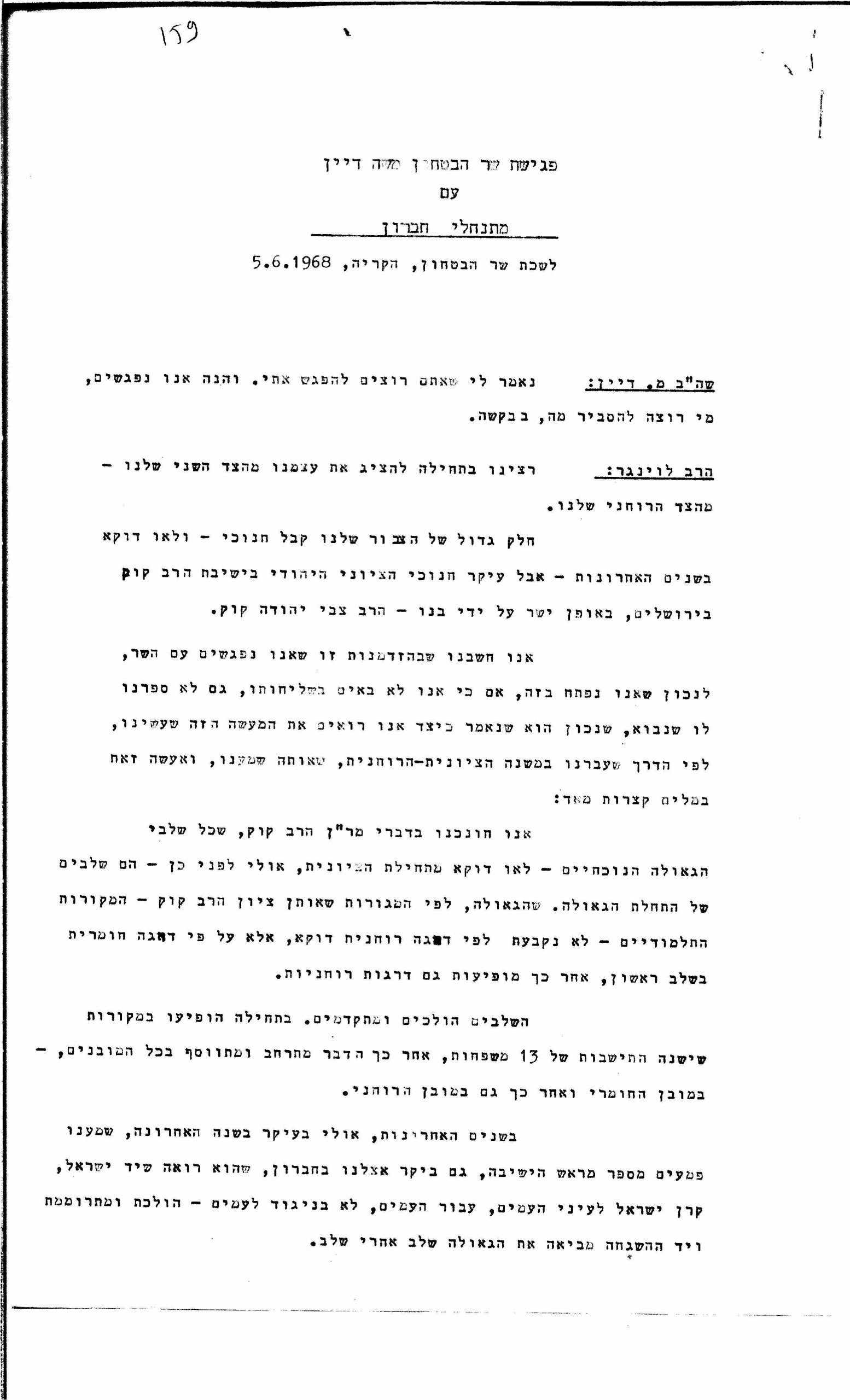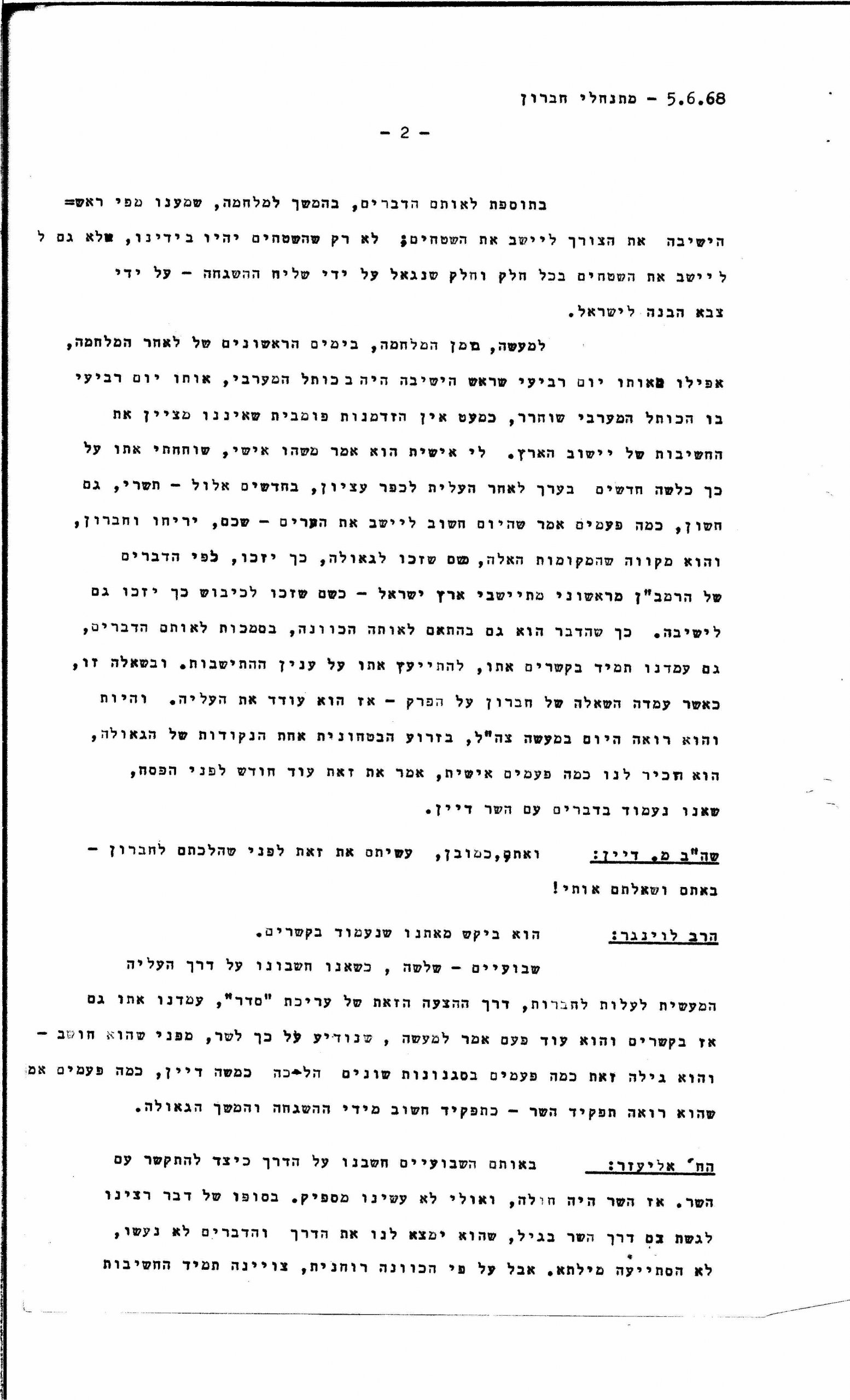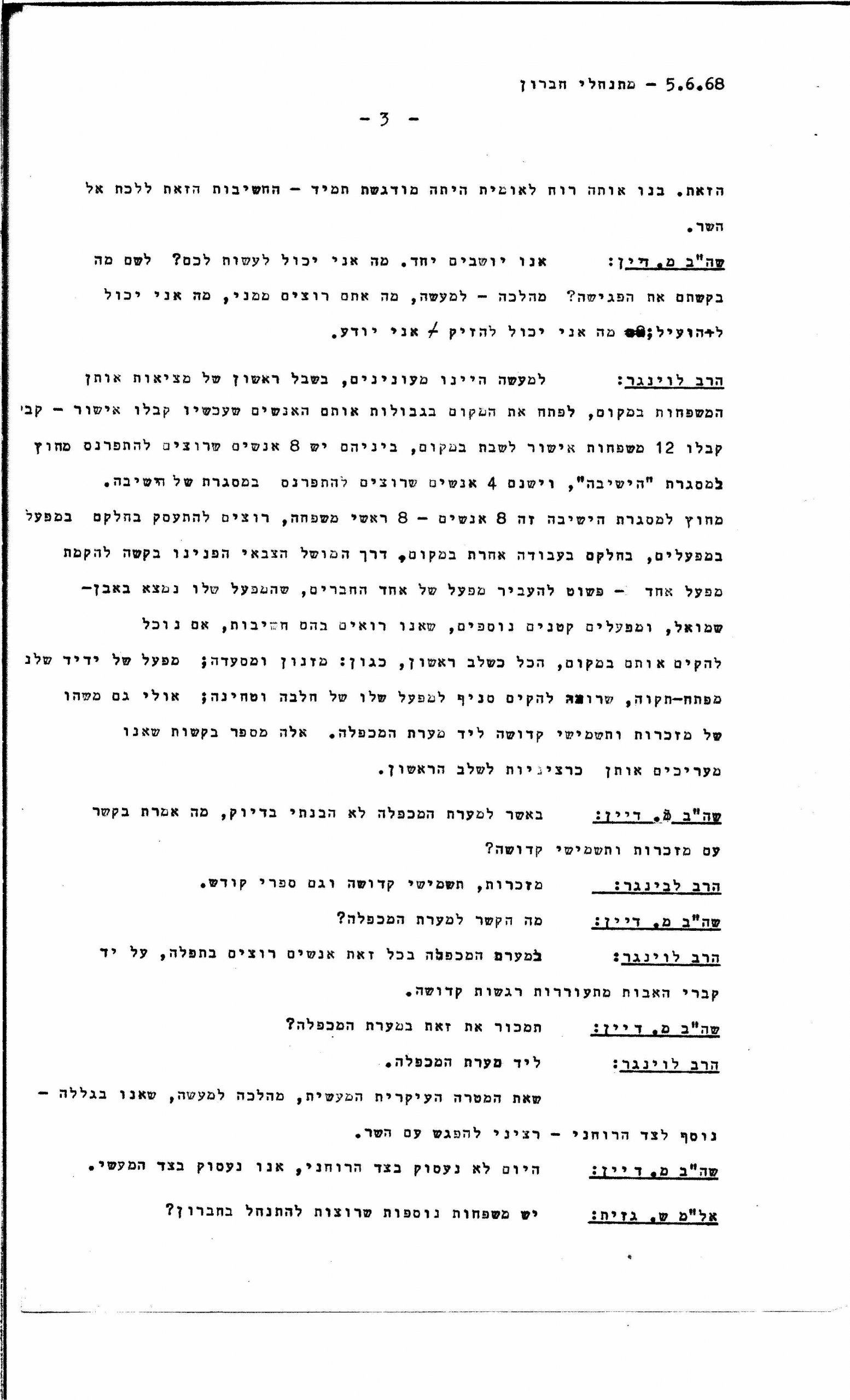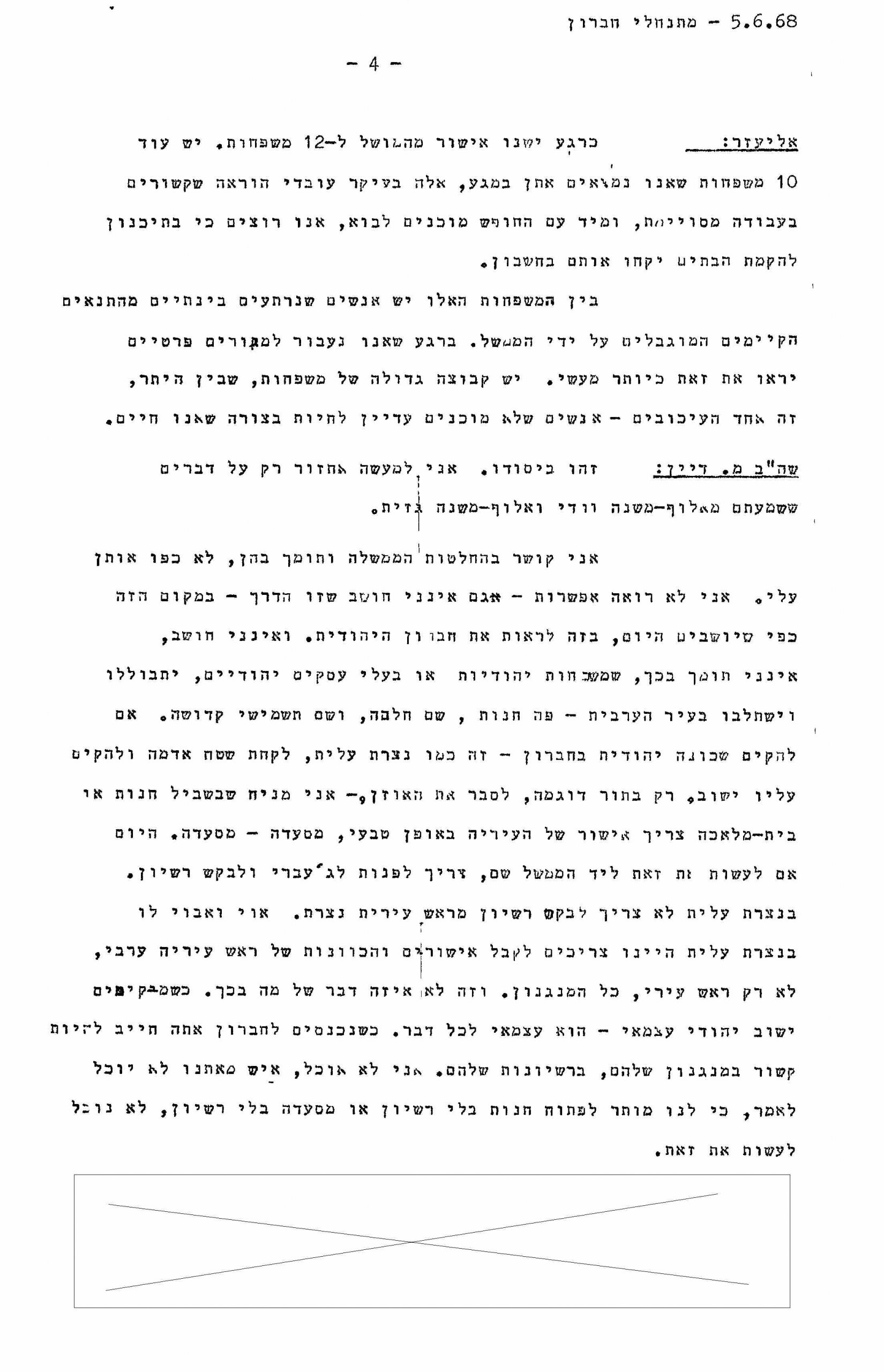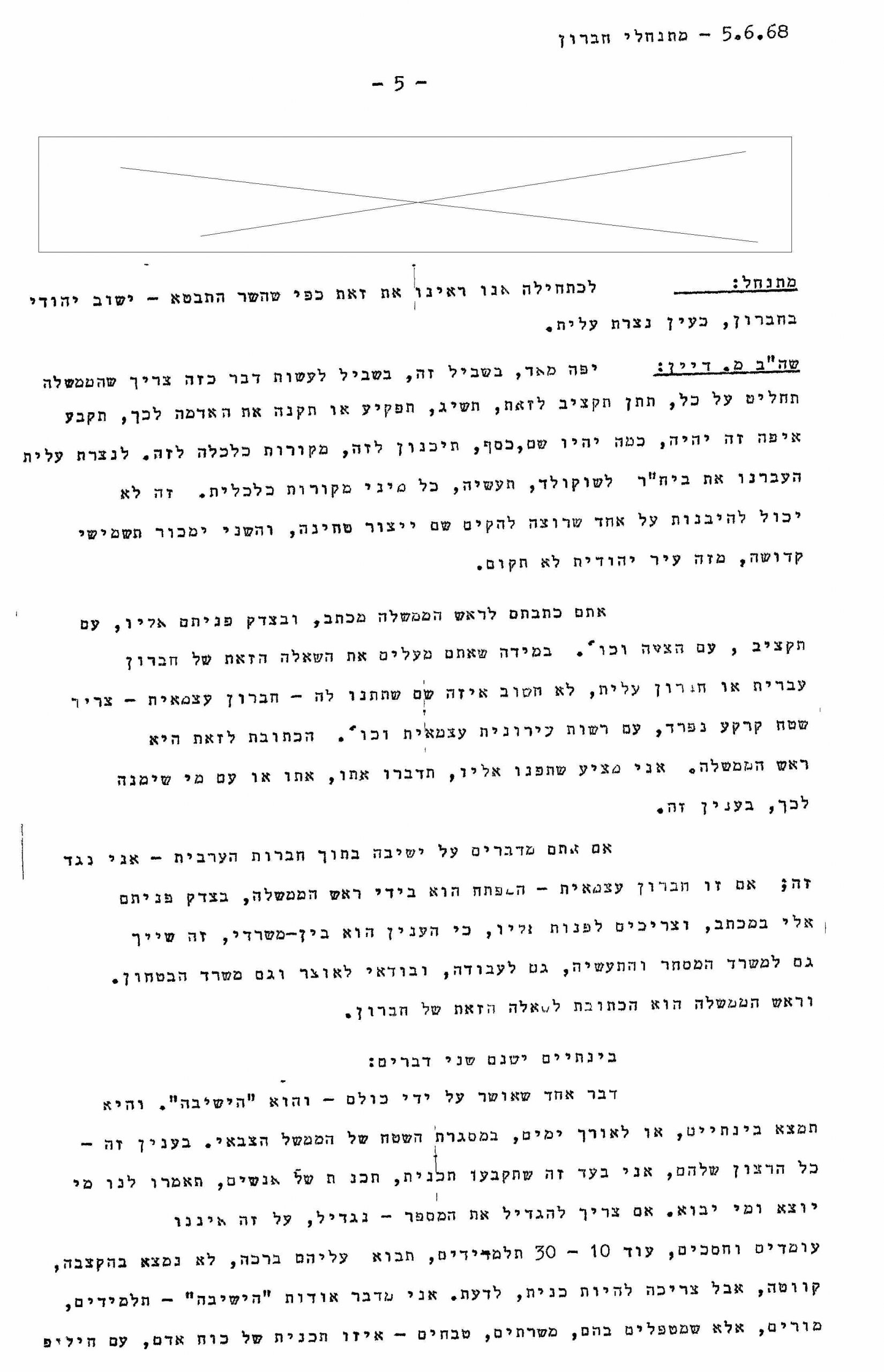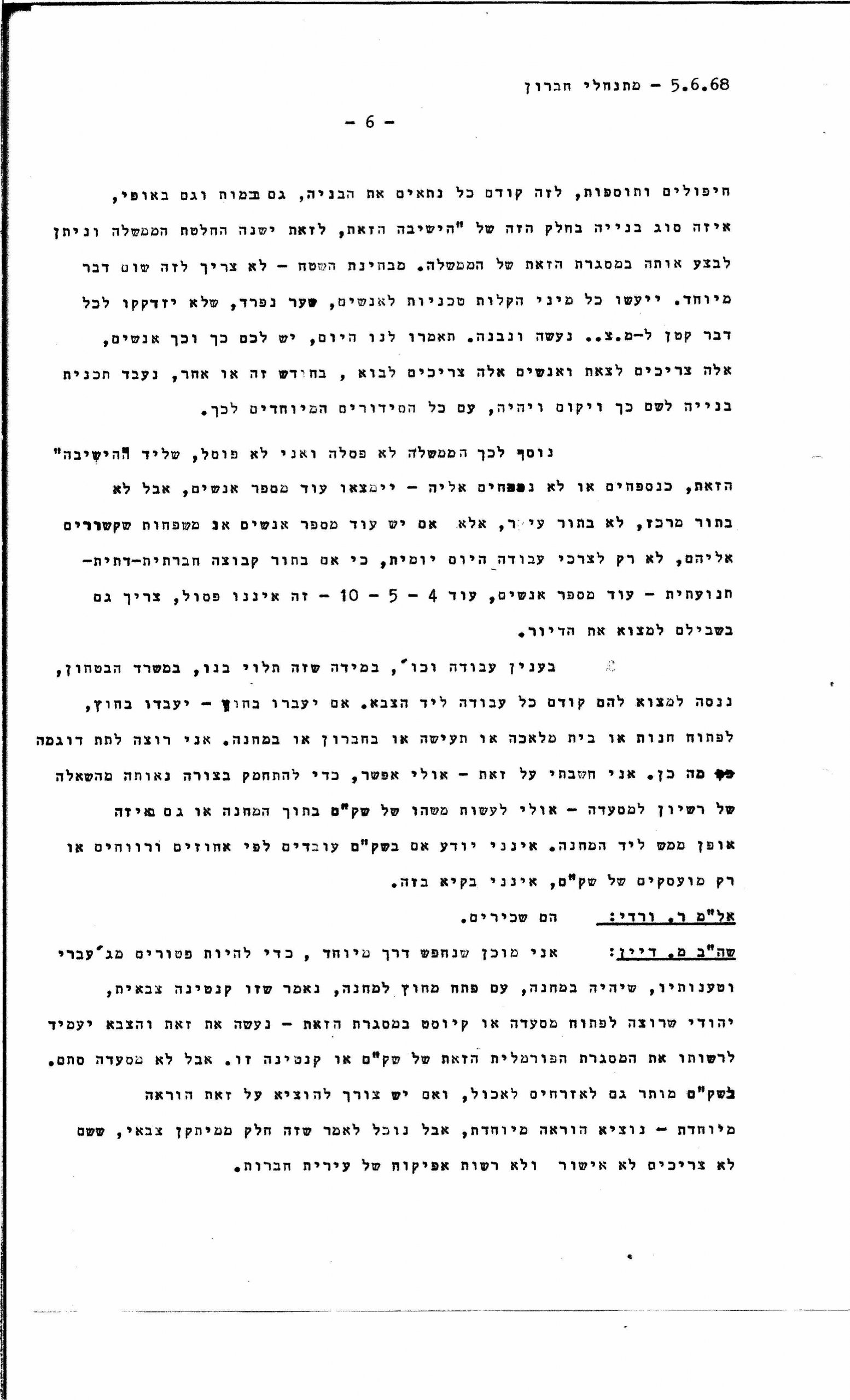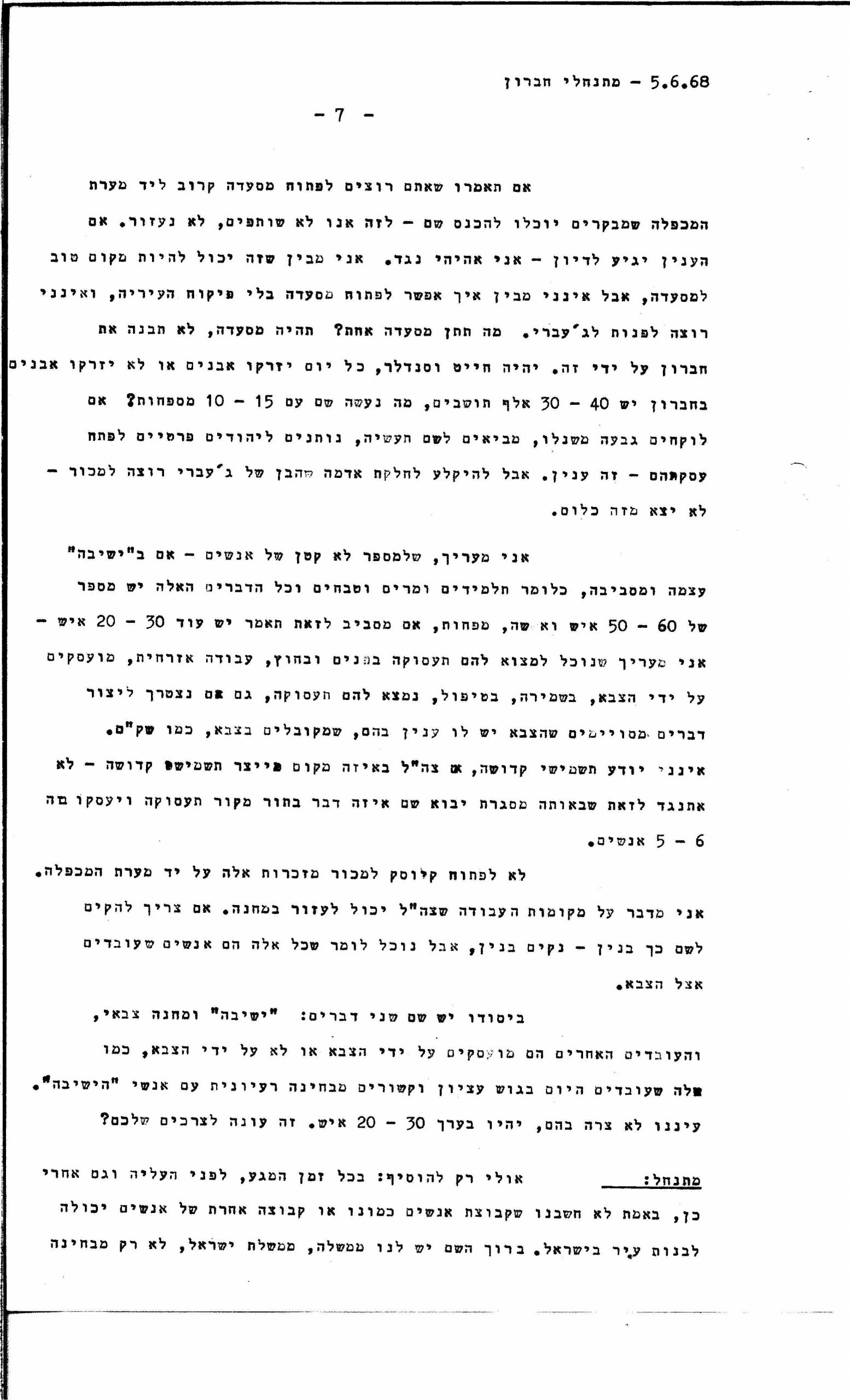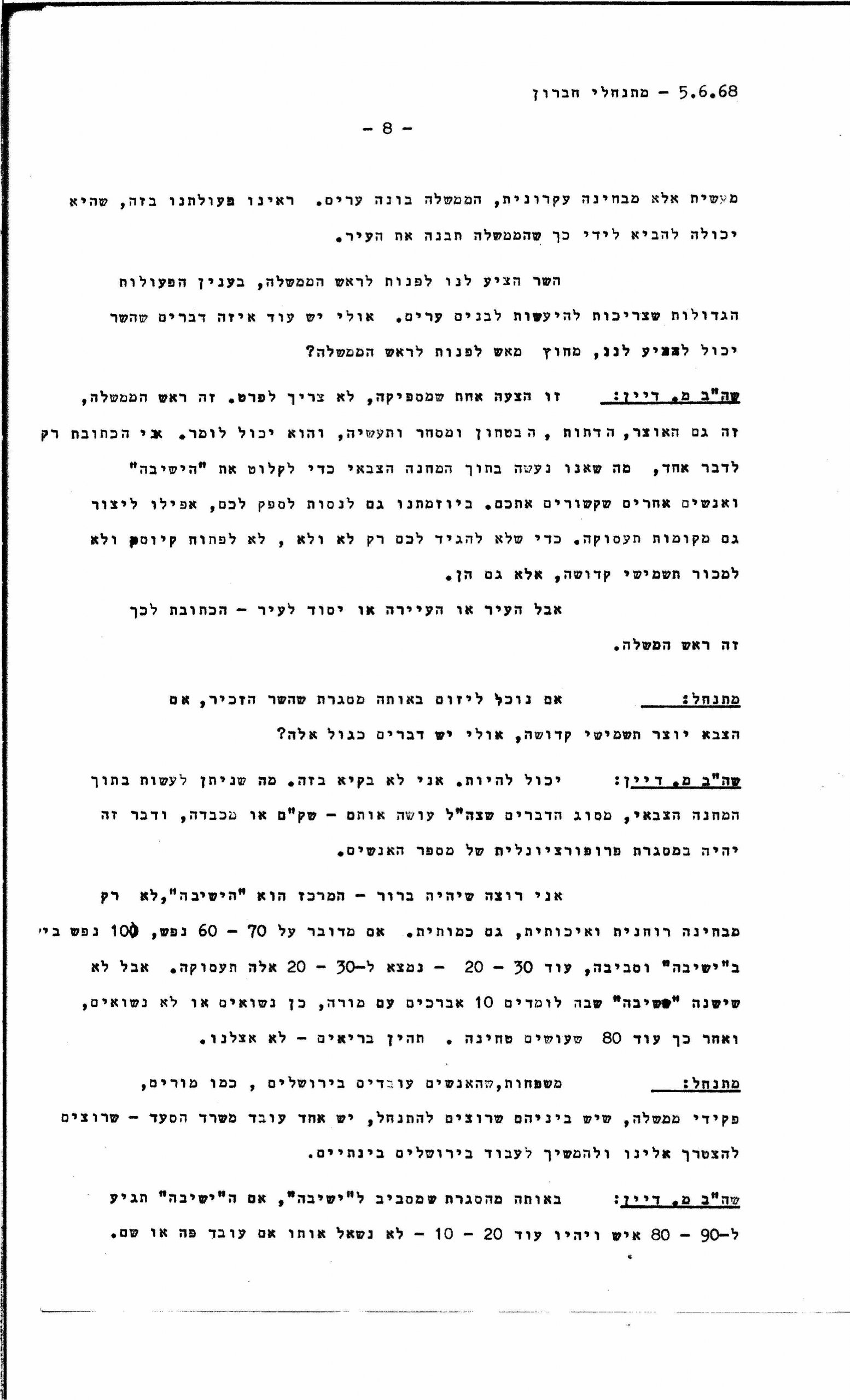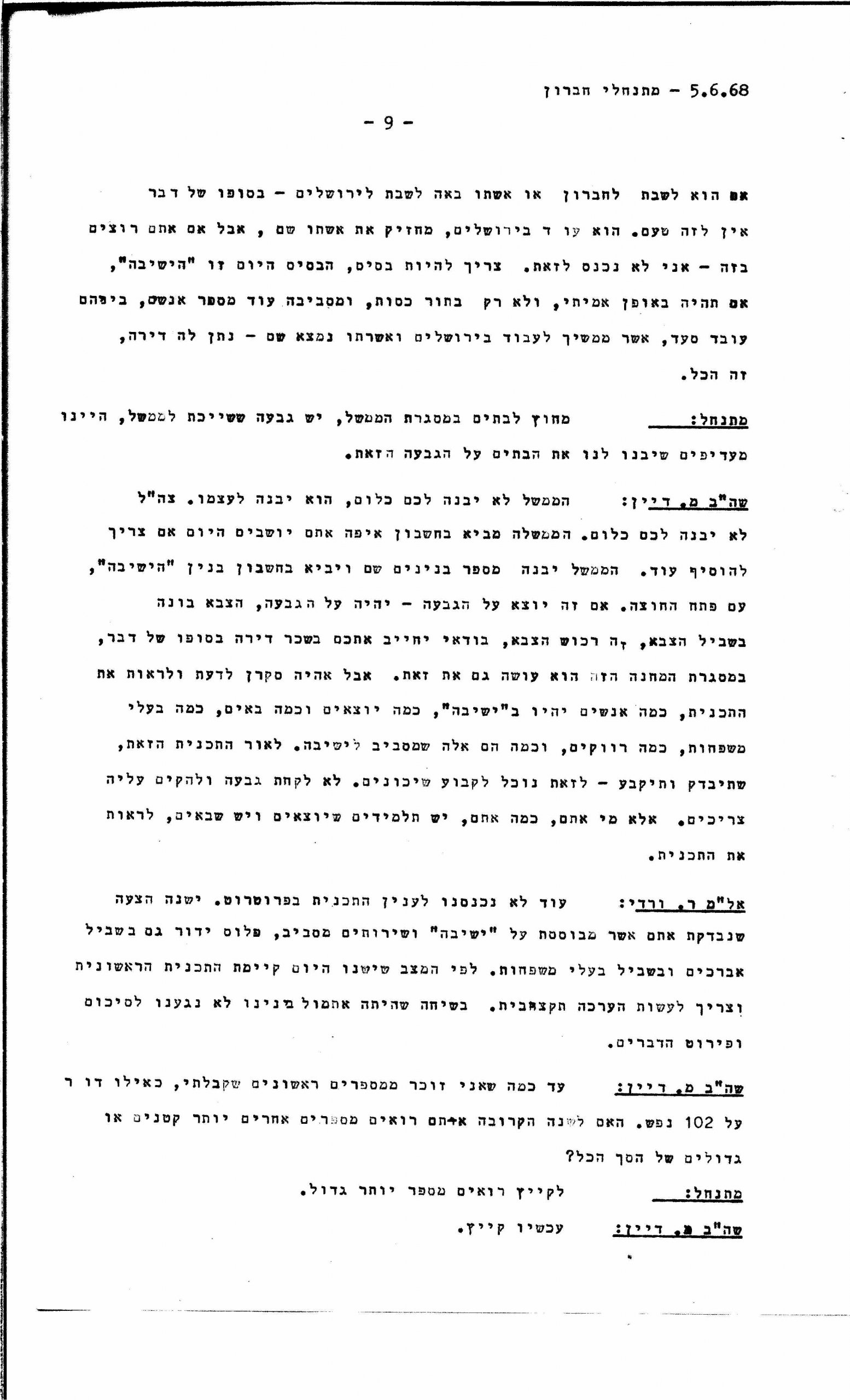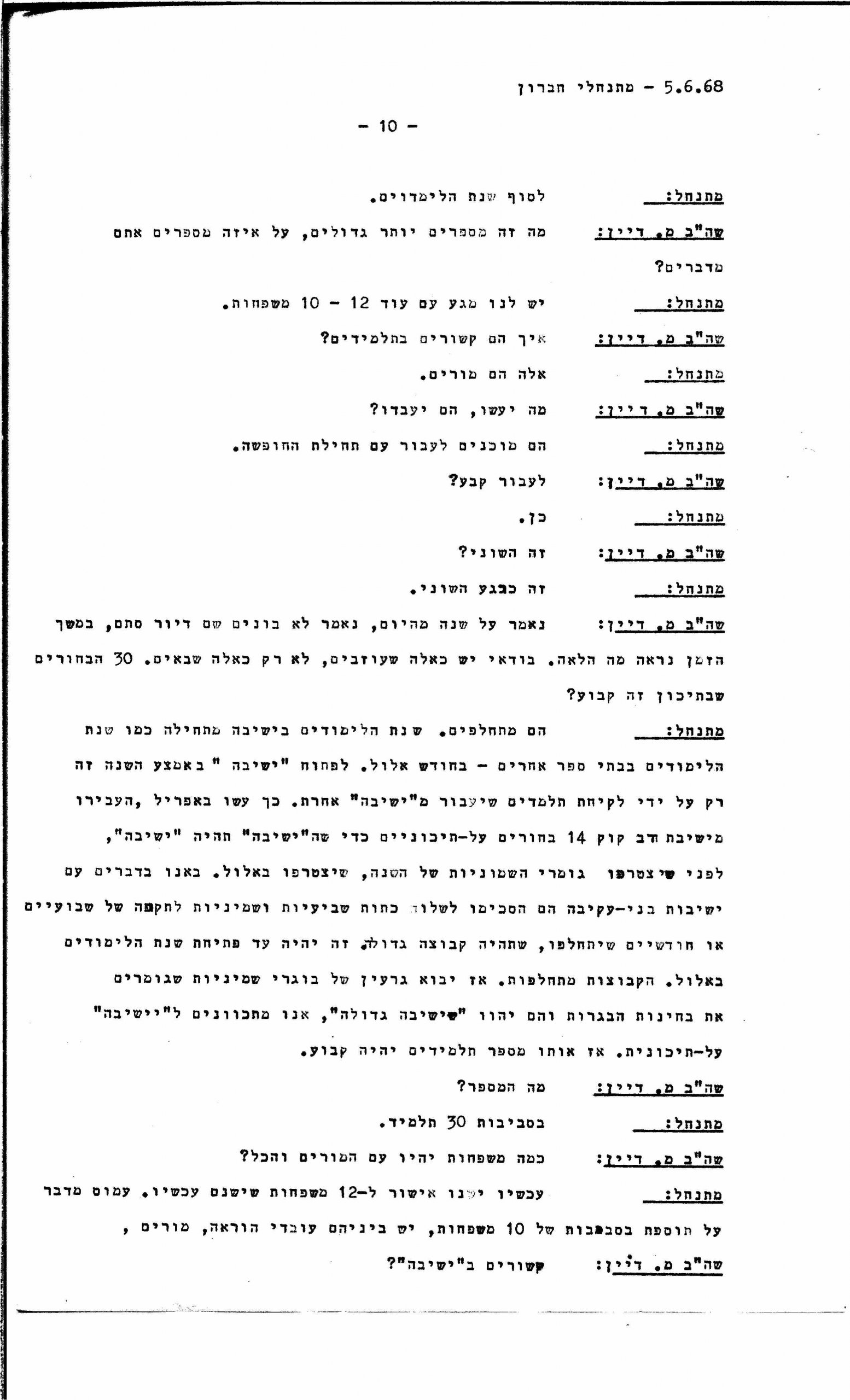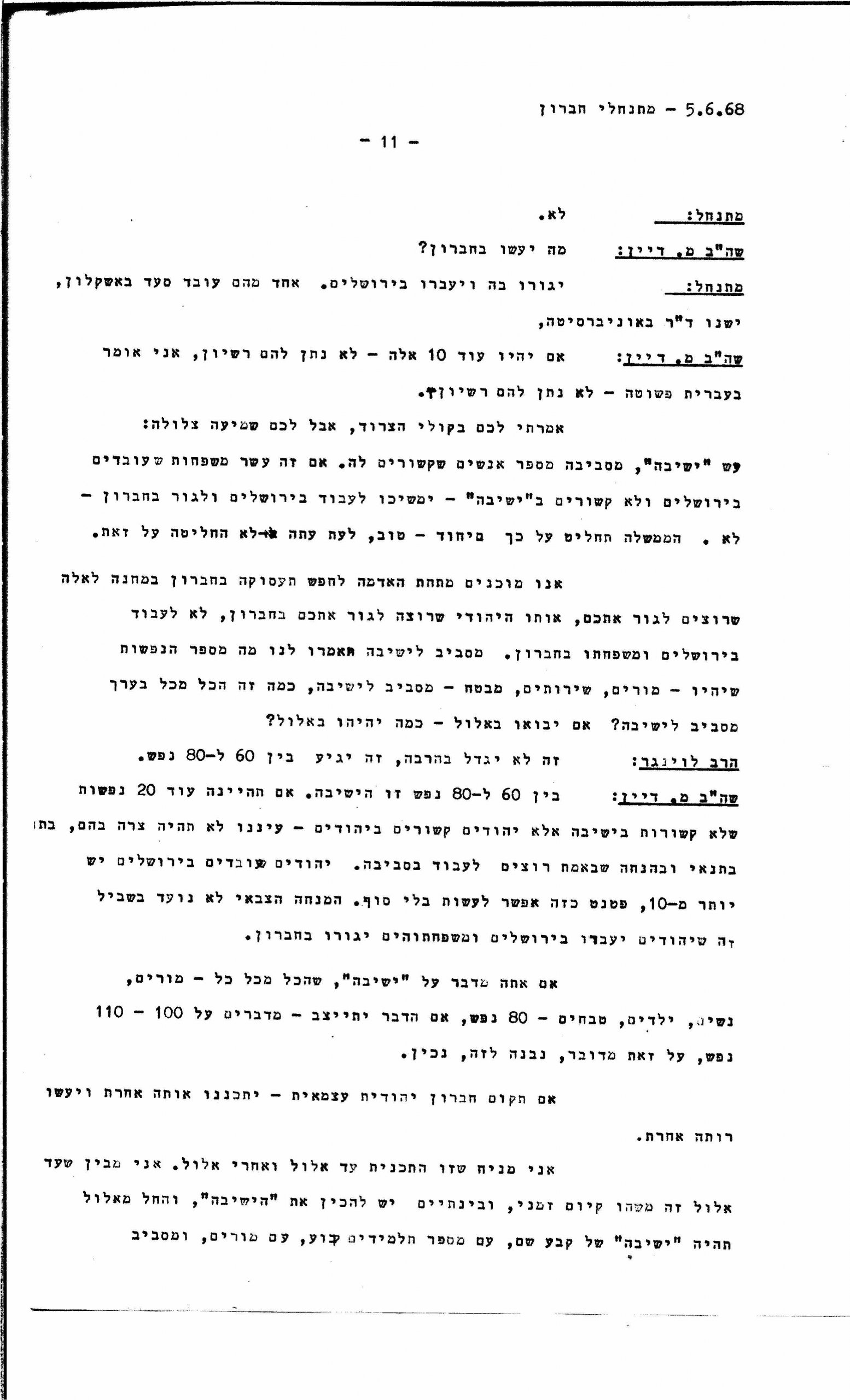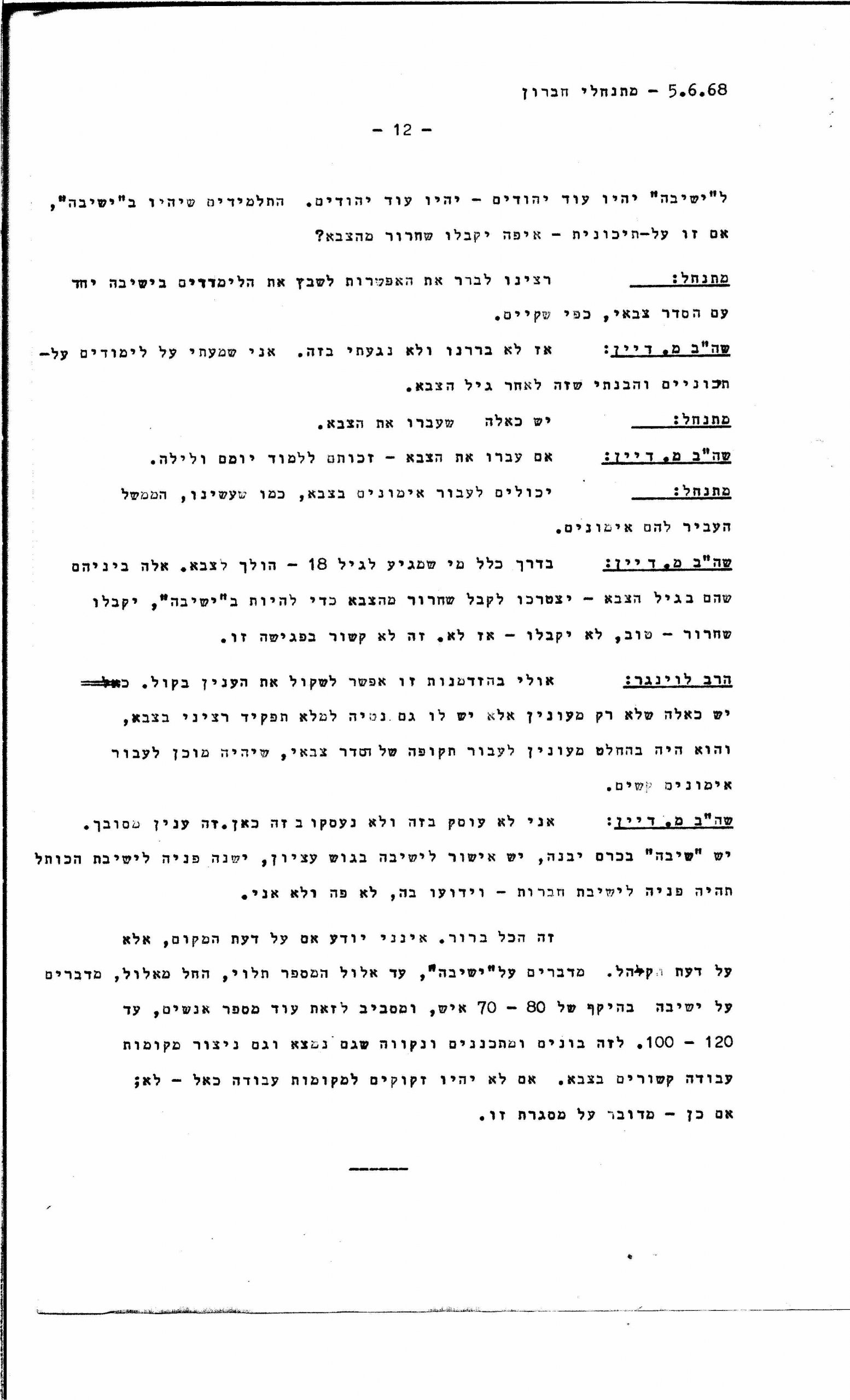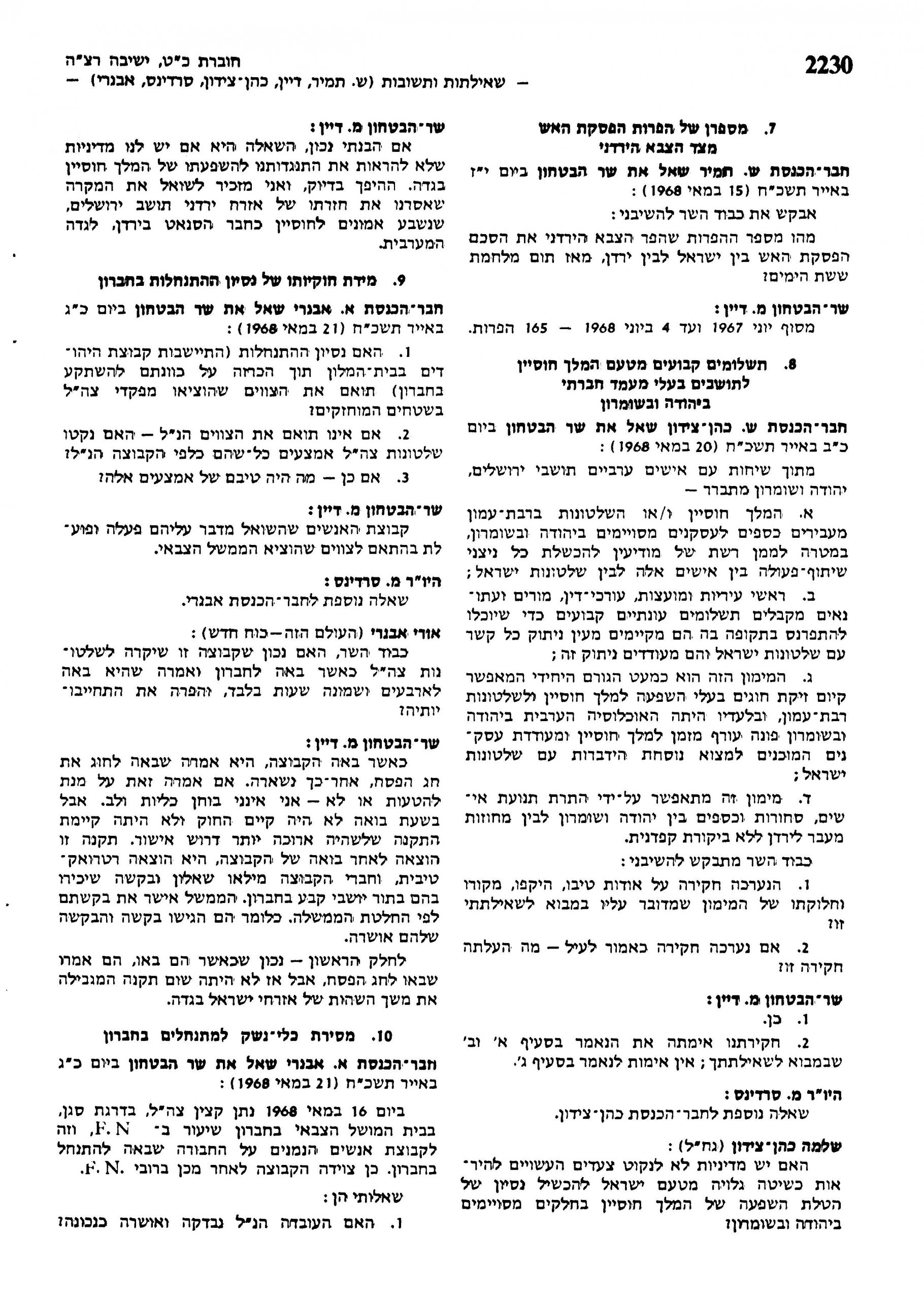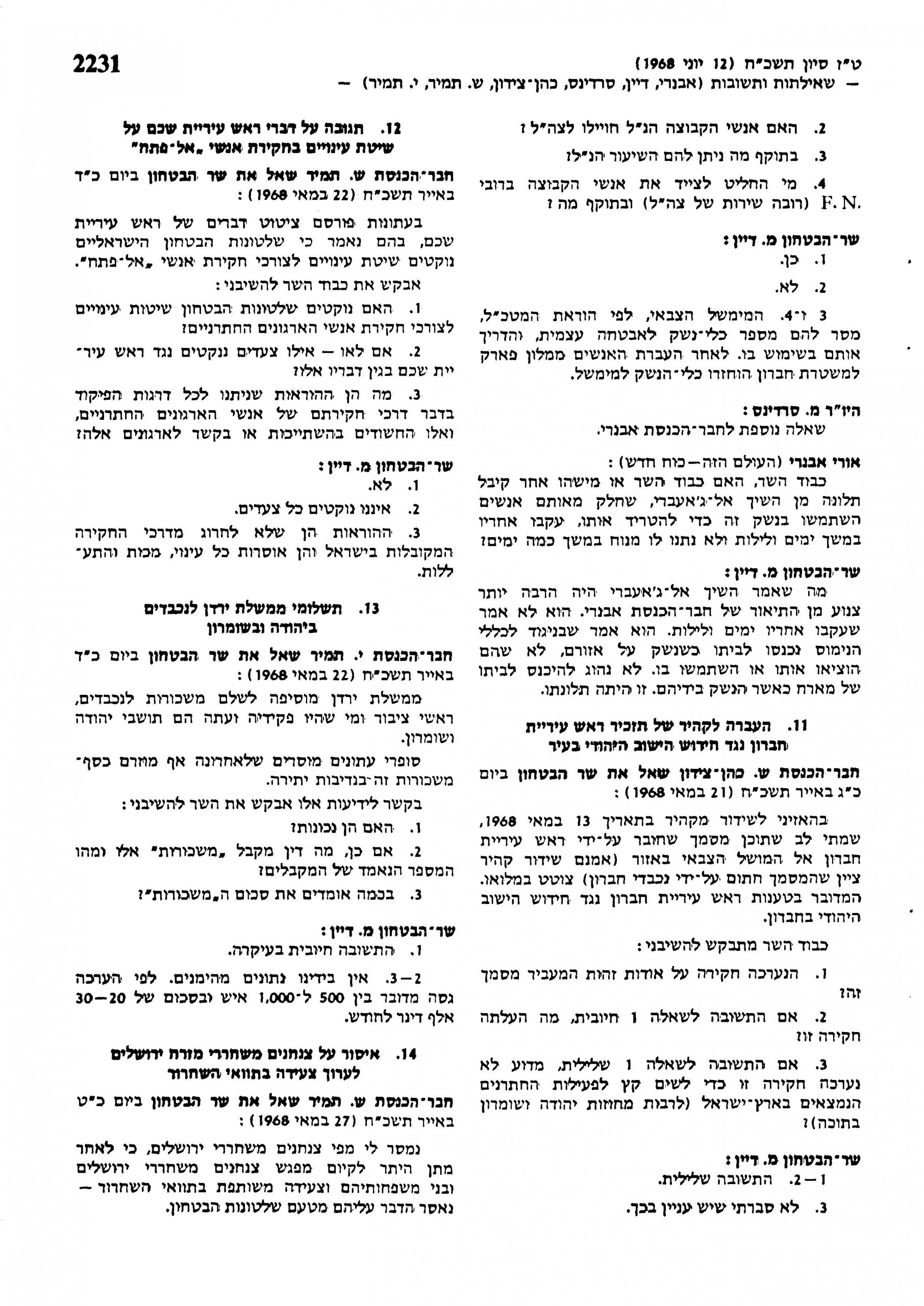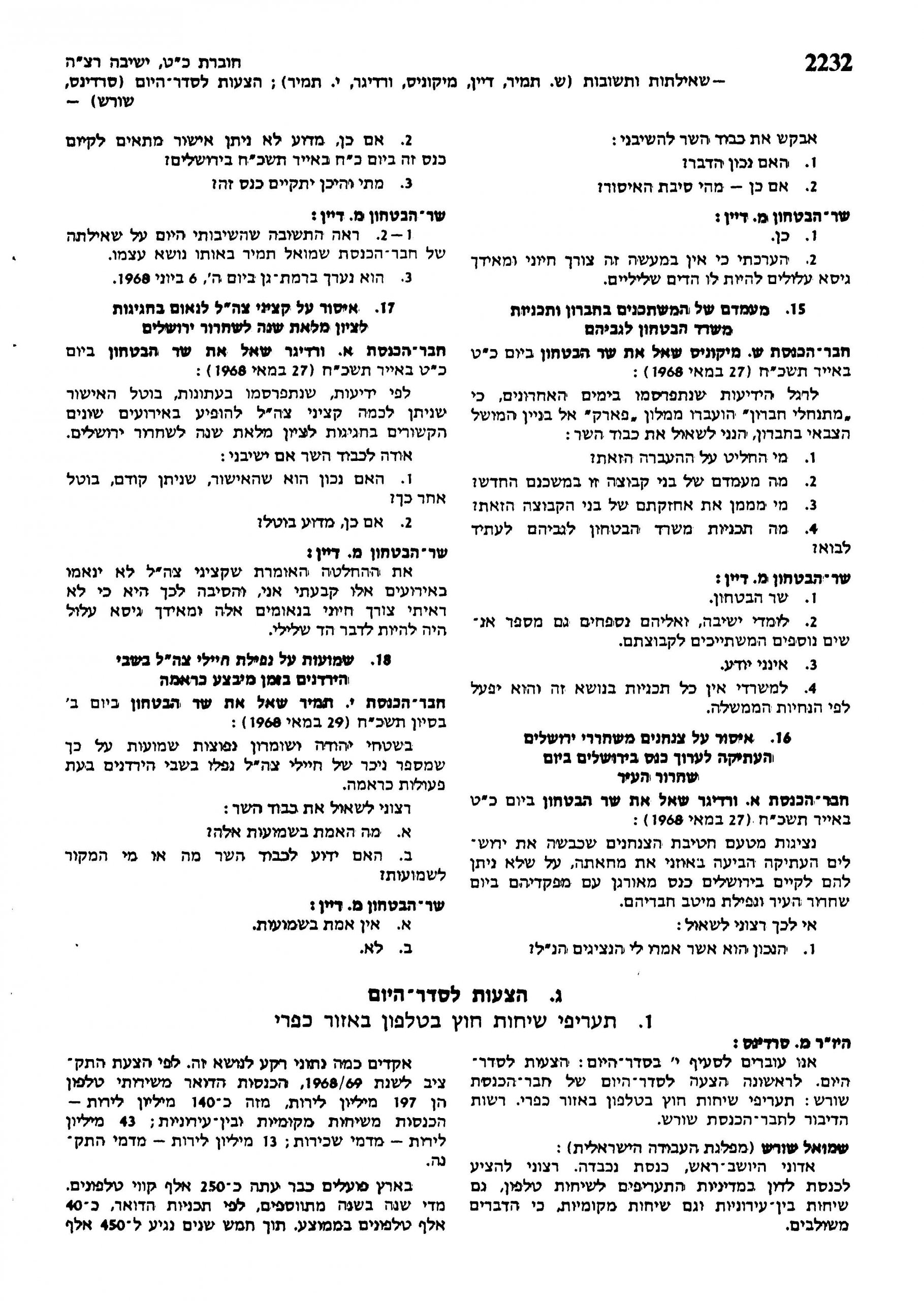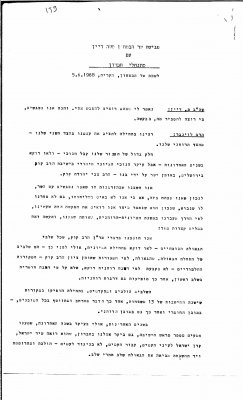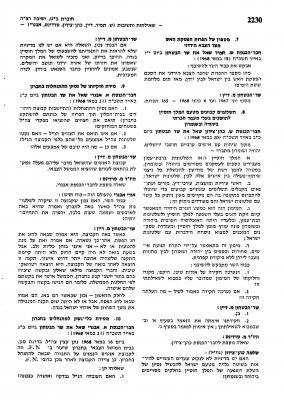The anniversary of the Six Day War, which broke out 54 years ago this week, is an opportunity to revisit a constitutive moment in Israel’s settlement enterprise in the Occupied Territories: The affair that began with the Passover seder at Hebron’s Park Hotel in April 1968. The transcripts of a meeting between Minister of Defense Moshe Dayan and settler leaders in early June 1968 serve as another example of how false excuses, innuendo, and wordplay were employed by both the settlers and the security establishment from a very early stage in a bid to promote and legitimize the settlement enterprise.
During a Knesset plenum session held on June 12, 1968, Minister of Defense Moshe Dayan responded to several parliamentary questions submitted by MKs, including Shmuel Mikunis, from the Communist Party, who asked for explanations about the Park Hotel Seder affair in Hebron, which began about two months earlier. On April 11, 1968, several dozen Jewish Israelis rented rooms at the Palestinian-owned Park Hotel in Hebron to celebrate Passover. It soon became evident that the group had planned to remain permanently in the Palestinian city, seized less than a year earlier, and they refused to leave. This was a crucial moment in Israeli politics in general and in the settlement enterprise in particular.
Several days after moving into Park Hotel, the settlers were transferred to a complex used by the city’s Military Governor. The transfer, originally meant as a means of protecting the settler’s safety, was in reality the initial approval for settlement in the city. “Two weeks later,” Idith Zertal and Akiva Eldar wrote in the book Lords of the Land: The war over Israel’s settlements in the Occupied Territories 1967-2007, “the Ministerial Committee decided against ordering the settlers to leave the city. The settlers needed nothing more to further establish their hold on the place.”
In Knesset session, MK Mikunis asked the Minister of Defense: “What status do members of this group have in their new abode?” and “What future plans does the Ministry of Defense have with regards to these persons?” Dayan answered briefly. On the settlers’ status, he said: “They are yeshiva students with several other additional people attached to the group.” On the second question, Dayan said: “My office has no plans in this matter, and it will follow the government’s instructions.”
Exactly one week before responding to MK Mikunis’ questions, on June 5, 1968, Minister of Defense Dayan met with the Hebron settlers headed by Rabbi Moshe Levinger in his office. Colonel Shlomo Gazit, who chaired the Committee for Political-Security Coordination in the Occupied Territories and Brigadier General Refael Vardi, Commander of the Occupied Territories, attended as well. The transcripts offer important insight into the relationship between the settler leadership and the Government of Israel and shed light on the first steps towards the Hebron settlement, which today has few hundred inhabitants. After a long introduction by the settler delegates about the spiritual impetus behind the settlement in Hebron, Dayan clarified that, “We are not discussing the spiritual side today; we are discussing the practical side.” True to his word and taking a more practical tone, Dayan told the settlers that founding a Jewish city in Hebron, as Israel had done in Nazareth Illit, for instance, required a government resolution. At the same time and with the same breath, he also implied that a decision to establish a yeshiva in the city (the word appears in quotes throughout the document) would have his full support and assistance. The participants understood these cues perfectly well.

